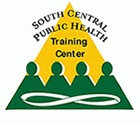
Evaluating Effectiveness in Public Health at the Individual and Organizational Level
Course Description:
This presentation will highlight the importance of a systematic approach in evaluating the effectiveness of public health programs, practices, and policies. The presentation will provide applied examples of key concepts and principles and emphasize practical approaches for developing and implementing these evaluation efforts. In this way participants will be able to more effectively plan public health evaluation strategies, better ensure continuous quality improvement of public health programs, practices, and policies, and demonstrate accountability and return on investment at both the individual and organizational levels.
Target Audience
Academic Faculty/Staff, Federal Government Employees, State Government Employees, Local Government Employees, Non-Government Employees and Students
Learning Objectives
- Define key concepts in systematically evaluating public health programs, practices, and policies
- Name the essential elements of evaluation in public health practice to ensure on-going improvement throughout the public health system
- Review the elements of the logic model and its role in guiding subsequent evaluation efforts
- Describe the importance of evaluating effectiveness at the individual and organizational levels
- Explain the use of a 360° evaluation process to measure individual and organizational effectiveness including considerations regarding each major stakeholder
- Distinguish between objective and subjective measures including guidelines to create standardized measures of effectiveness
- Identify the major pitfalls to evaluating effectiveness of public health programs, practices, and policies
- Describe the use of social network analysis for evaluating effectiveness among public health workers and entities
Instructor:

Sue Ann Sarphy, PhD
Sue Ann Sarpy is principal of Sarpy and Associates, LLC and Clinical Assistant Professor of Environmental Health Sciences in the School of Public Health and Tropical Medicine at Tulane University. She has served as principal scientist for various research projects that evaluate the effectiveness of health and safety interventions including safety training for the Gulf of Mexico Oil Spill workers, labor and minority worker safety training for the construction industry, and exposure control in the automotive industry. She has also served a lead evaluator for the South Central Center for Public Health Preparedness and South Central Public Health Training Center for Tulane University. In this capacity, she developed and implemented a comprehensive integrated training system framework to assess workforce preparedness and emergency response capacity for public health workers and first responders.
She is collaborating with the National Association of County and City Health Officials’ and the Robert Wood Johnson Foundation to design and implement an outcome evaluation of a nationwide leadership and managerial training for new Local Health Officals. She serves as the Evaluation Co-Chair of the National Leadership Development Network in Public Health. She has written and co-authored a series of articles, book chapters, technical reports, and national and international conference presentations concerning these evaluation efforts. Her research interests include intervention effectiveness in reducing health risks, occupational health and safety management, and public health workforce preparedness and leadership development. She received her Ph.D. in Industrial/Organizational Psychology from Tulane University in 1996.
Available Credit
- 2.00 Participation/CETulane Professional and Continuing Education (PaCE) awards 2.00 hour(s) of credit for completing Evaluating Effectiveness in Public Health at the Individual and Organizational Level
Price
Required Hardware/software
System Settings
This course is designed to work most effectively if your computer and internet connection meet certain minimal requirements. This course can be accessed using a Windows 10 PC or a Mac with High Sierra1, Mojave, or Catalina. Pop-up blockers should be disabled when viewing the course. Internet Explorer 11 (for Windows 10), or the current version of Google Chrome, Mozilla Firefox, or Apple Safari (for Windows 10 and or Mac) is required. Many of our courses require Java and JavaScript enabled.
Links to External Websites
Links to websites outside this course will open in a new window or tab. Some browsers may minimize the course window. If this occurs, maximize the course window to return to the course.
Adobe Acrobat Reader (for desktops and laptops)
Adobe Acrobat Reader is required to access some documents in this course. If you need to download a free copy of Acrobat Reader, click here.
Internet Connection Speed
A minimum download speed of 1.5 Mbps is recommended for an optimal experience, which is commonly the speed associated with a basic DSL or a cellular/satellite connection. A faster connection, such as cable or fiber service, with further enhance your online experience. A Wi-Fi connection is generally acceptable, but it is dependent upon one of the two services mentioned above. You can check your internet connection speed at http://www.speedtest.net/.

 Facebook
Facebook Twitter
Twitter LinkedIn
LinkedIn Forward
Forward